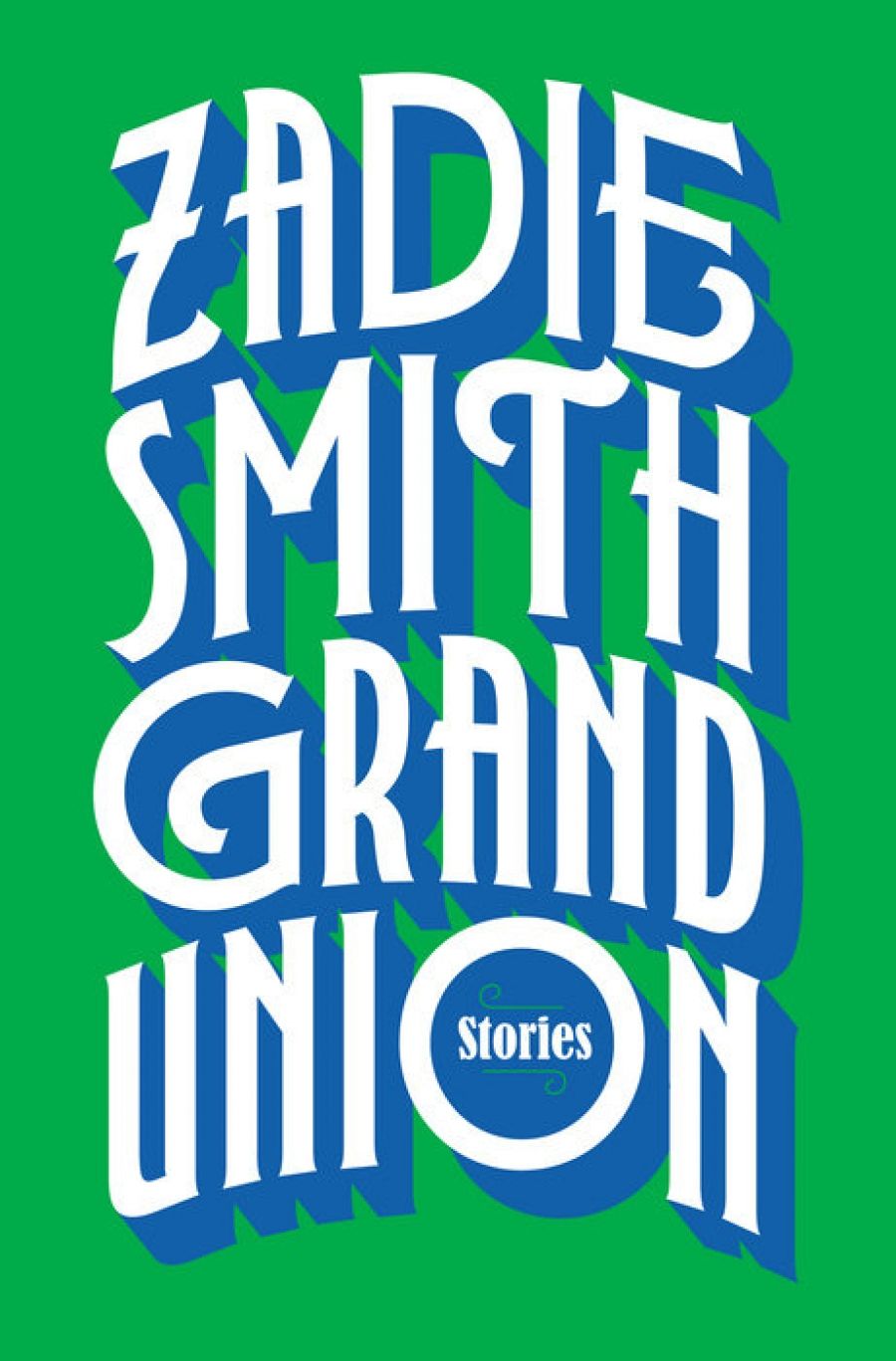
- Free Article: No
- Contents Category: Short Stories
- Review Article: Yes
- Custom Highlight Text:
Zadie Smith’s commanding collection Grand Union puts our contemporary lives and mores under the microscope. She sets her sights on the insanity (and inanity) of social media, the internet, and ‘call-out culture’, but leaves room to consider the tensions inherent in post-colonial nations, including race, gender, and sexuality.
- Featured Image (400px * 250px):

- Book 1 Title: Grand Union
- Book 1 Subtitle: Stories
- Book 1 Biblio: Hamish Hamilton, $32.99 pb, 245 pp, 9780241337035
The collection will leave readers pondering the ambiguities and contradictions of twenty-first-century life, and the distance between our inner selves and the personas we construct. As Smith writes in ‘The Dialectic’ (the first piece in the collection, set in a beachside resort), ‘I did not say that I am. I said that I should like to be.’
The collection grows increasingly scornful of social media. Many of the pieces expose the gap between what we are and what we pretend to be, or what we want to be and what we are too lazy to be. This ambivalence prevents the collection from forming a consistent whole. Perhaps that is the point – Smith is allowing the reader to experience the randomness, and seeming meaningless, of contemporary life. This is made explicit in several pieces, notably ‘The Lazy River’, where the ‘obscene bulge’ in the skinny white jeans of Rico and Rocco are actually iPhones, ‘the existence of which we have decided not to reveal to them for many years, or at least until they are twelve’.
Grand Union feels unnervingly current. Even when pieces focus on one experience or story, they take place against the politics of the here and now. The #MeToo movement is present, but less than one might expect. Both Christine Blasey Ford and Brett Kavanaugh feature in ‘Downtown’, though their presence is muted. In the background, we are reminded that ‘Dr Ford was testifying’ and events unfolded ‘just in time for Brett to make his case’. And one cannot escape the existence of Donald Trump in ‘Mood’, where ‘they’re still behind him. He makes them feel good. They want him to just go ahead and shoot somebody on Fifth Avenue like he promised.’ ‘Now More Than Ever’, a piece originally published in July 2018, drew criticism at the time, not least for its last two words ‘me, too’.
 Zadie Smith (photograph by Dominique Nabokov, 2016)
Zadie Smith (photograph by Dominique Nabokov, 2016)
The collection ranges across time, viewpoint, and genre – there is no single theme. Smith is not interested in the idea that only someone with lived experience can write about it. She plays with point of view, and her suite of characters are male, female, and transgender, with some slipping into first-person narration. How much of this first-person narration is actually Smith is a question for the reader. In ‘Parents’ Morning Epiphany’, the narrator drops tantalising hints about language, storytelling, and structure, and the reader is left questioning whether Smith believes these statements or not. Then there is ‘For the King’, written as the autofiction of a writer who goes out to dinner with an old friend. The reader cannot help but wonder to what extent Smith is playing with them. Is she revealing herself with full deniability, or simply creating a fictional flight of fancy that we may mistake for her?
By playing with point of view, Smith is courting controversy. ‘Blocked’ is written from the viewpoint of God ‒ not only that, a God that is trying to explain Creation (‘when you create something out of nothing at such a tender age it’s just a lot to take on, psychologically’), why they withdrew from the world (‘you can’t be in every household, sitting at a person’s shoulder’), and why they are depressed these days (‘at a certain point, given the way things are, it’s a fair and rational response’). It stands as a brilliant commentary on how humanity may have missed the point.
‘Two Men Arrive in a Village’, first published in 2016, is a heartbreaking parable, one self-consciously aware it is a tale told the world over. Gender-based violence and the quest for power and control don’t seem to date, after all. And then there is ‘Kelso Deconstructed’, a reconstruction of the final days of Kelso Cochrane, who was caught up in the very real race riots in Notting Hill in 1959.
Grand Union is a deft collection. It allows readers to dip in and out of Smith’s worlds as they desire, pondering her interpretations of the travails and complications of contemporary life. However, while fans of Smith will relish this myriad of insights into her craft, they may crave more – perhaps an entire novel in which Smith explores these themes in depth.


Comments powered by CComment